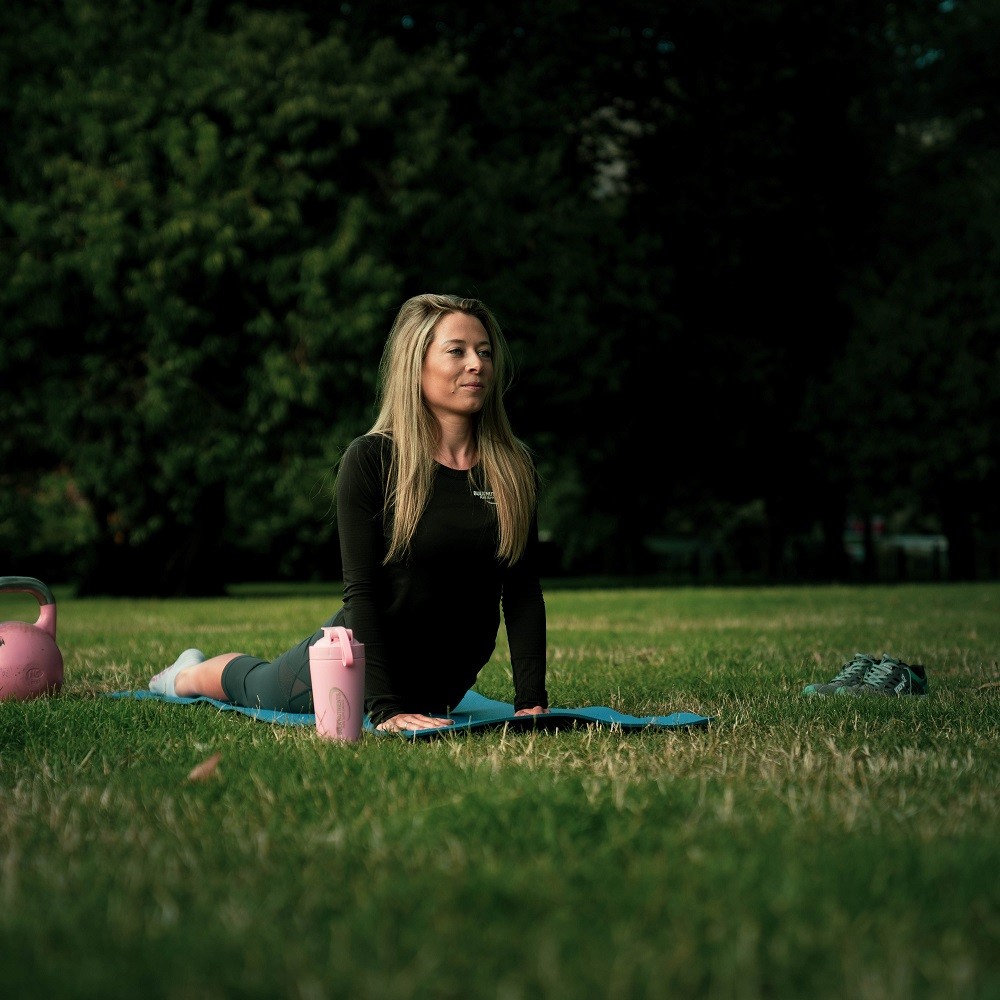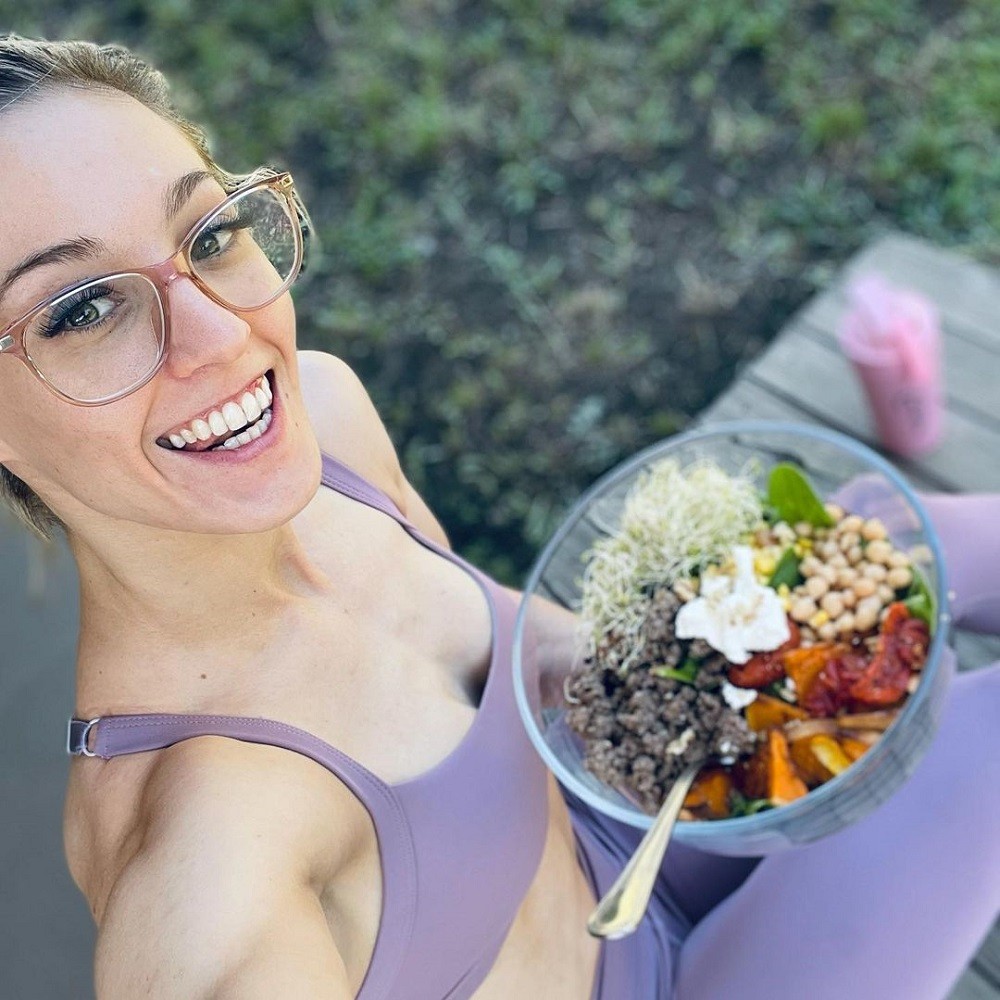Diets that work? Which diet is best for me?

Going on a diet or lifestyle change?
One of the biggest conversations surrounding body composition is diet and which diet is the best. But, before we go too much further, let’s consider what “diet” really means.
The No Diet Diet Plan
Unlike what we’ve been told throughout our entire lives, you shouldn’t be considering “going on a diet” as something temporary. Instead, your diet is what and how you eat long-term and is as constantly evolving as you and your dietary needs are.
Typically, the conversation trends towards “going on a diet” for two reasons, weight loss or improvement in general health. This conversation implies that diets are a temporary means to an end and that after this temporary phase, you will have the physique you aspired to and/or have improved your general health.
While you may see physique changes in the short term, this short-term dietary approach doesn’t set you up to maintain and control your diet once the temporary phase comes to an end. Instead, this generally ends with you reverting to old dietary habits, the same habits that got you looking for a “new diet” in the first place!
It is also true that the current “diet” trends, sometimes now touted as “lifestyles”, are heavily influenced by media content. However, in recent years this has trended away from mainstream media with the old “three shakes a day” and delivery of pre-portioned meals to influencers on social media displaying their day-to-day diets and meal plans from online coaches.
While all of these have the potential to deliver results, they rarely set you up to know what it is you’re actually doing, and unfortunately, many times, even those promoting the diet don’t really know how it worked.
Ironically, in an age of widely available dietary information, it seems anyone with a good physique and a compelling “silver bullet” diet will always be more convincing than scientific research. Hopefully, by the end of this post, you will realise that the true “secret” to controlling your diet for the desired outcome is simply this:
Calories in, Calories out
One final thought before we look at a few popular diets, your diet should support your lifestyle, not define your lifestyle.

Keto Diet Plan
Let’s start with the big gun, the ketosis diet. The premise here is to avoid carbohydrates and consume your calories in only proteins and fats. The removal of carbohydrates from the diet means that the body cannot use glycogen as an energy source and instead breaks down ketones (fat) as a form of energy.
This has been touted by many as a “more efficient use of consumed energy”; however, a recent systematic review found no significant performance enhancement for endurance athletes on a ketogenic diet.
This type of diet is one that I would consider as a drastic dietary change, with some level of carbohydrates present in the majority of foods we consume in a typical western diet. However, just because it’s a drastic change, that doesn’t mean it’s a bad one.
The keto diets biggest downfall and the same is true for very restrictive diets, is certainly long-term compliance. But, in addition, this type of diet makes for difficult situations concerning eating out at restaurants, picking up food on the go and basically any random life situation that you find yourself in where you don’t have complete dietary control.
Because of this, many people allow for temporary breaks in ketosis, perhaps for one meal, to make for a more flexible approach.
Ketosis was originally sold as “eat as many fatty foods as you like, and still lose weight”, but that’s not true. Yes, the keto diet allows you to eat a lot more fat than other diets may, but the extra fat supplies the calories that carbohydrates would have.
If the calories you consume from protein and fat as a part of your keto diet (energy in) are higher than your energy expenditure (energy out), you’ll still gain weight. The reason keto appears to be successful for most is actually the same for most restrictive diets, and it’s primarily because of the restrictions in terms of foods you can consume that it is quite easy to consume less energy than you expend based on food options!
The other potential issue is that many fruit and vegetables contain carbohydrates. Many looking for that silver bullet and considering diet as temporary will avoid eating fruit and vegetables during their “dieting” period and skipping all the micronutrients essential to health.
That’s not to say that a properly designed ketogenic diet isn’t effective, with a recent systematic review concluding:
“evidence suggests a positive association between adherence to a ketogenic diet and body composition (reduction in body weight and fat mass) and psychological well-being (positive in the long term). However, there is equivocal evidence surrounding its effects on physical health and sporting performance.”
In summary, keto is balancing energy in vs energy out while avoiding carbohydrates.

Is the Intermittent Fasting Diet right for me?
This diet has skyrocketed in popularity in the last few years and is still being discussed and practised heavily.
What is Intermittent Fasting?
Intermittent fasting involves fasting (read: not eating) for a set period of time (say 16 hours) and then consuming all of your calories in the remaining 8 hours.
The science behind intermittent fasting shows that where subjects comply with the diet and are coupled with resistance training, lean body mass (LBM) can be maintained with reductions in fat-free mass (FFM) and improvements in glycemic control.
Intermittent fasting is not prescriptive in the foods consumed but is restrictive in terms of time. The common practices here are 5 days of eating, 2 days completely fasted, or a 16-hour fasted, 8 hours eating roster.
If you're sleeping for 8 hours each night (seriously, who sleeps that long?), there are still 8 hours in the day when you need to remain fasted. But, of course, everyone’s schedule is different. Still, the trick here is trying to ensure you keep your fast while maintaining exercise (which should never be fasted) and consume all of your calories within the 8 hours you are allowed to break the fast, all without gorging yourself on everything you’ve been eying off during your fasting period.
Intermittent Fasting Benefits
The benefit for disciplined people is that trying to consume the same amount of calories in 8 hours as you would if you didn’t have a fasting period is more difficult, ultimately consuming fewer calories.
A recent systematic review (2020) concluded:
“Future research should also consider whether IF paired with resistance training is more or less effective and sustainable compared to other traditional forms of energy restriction diets.”
In summary, Intermittent Fasting is balancing energy in vs energy out by only consuming calories within a certain timeframe each day.
Plant Based Diets

Plant-based diets are trendy at the moment, perhaps due to the popularity of many vegan athletes and fitness figures, perhaps due to “documentaries” that make meat-eating a government conspiracy and/or the end of the planet, or perhaps because no one ever realized that you really could get your protein intake from a plant-based diet.
Whatever the reason, a lot of people are moving towards plant-based diets. I think of a plant-based diet more like a spectrum, from vegetarian to vegan, which increases in restrictiveness as you move up the spectrum towards vegan.
Plant Based Food Benefits
There are certainly benefits to plant-based diets; the most significant benefit is moving away from most highly processed foods towards more natural options. While that’s not to say there aren’t plenty of plant-based friendly, highly processed foods, the move away from processed meats, for example, is, in any nutritionist's book, a win.
A recent comprehensive review of the literature concluded:
“Based on the currently available literature, it is unlikely that plant-based diets provide advantages, but do not suffer from disadvantages, compared to omnivorous diets for strength, anaerobic, or aerobic exercise performance.”
Heading towards veganism, you run into the same issue as most restrictive diets, long-term compliance. So maintaining a vegan diet was more about staying organised, two steps ahead if you will, to cover any situation where there would not be vegan options, which were many situations.
Again, social situations (restaurants etc.) were more difficult to navigate. Often, I would find the menu restrictions so difficult that I would crack open a meal-prep meal after getting home from dinner.
Personally, the only tricky part I found with the food choices themselves was trying to ensure I had enough protein and fat, as most meals have plenty of carbohydrates. Still, it certainly wasn’t as difficult to manage as I had envisioned.
In summary, a plant-based diet is balancing calories in vs calories out without eating animal products.

Shake Based Diets
These diets are based on the premise of delivering less energy than you require, with one key difference.
About Shake Based Diets
Shake based diets, where you are required to have 2-5 shakes a day and little real food, are a temporary solution that teaches you nothing about long term maintenance, calories or portion sizing, leaving you open to falling back into the same bad habits once you stop consuming the shakes.
For some, having a single meal replacement shake at a convenient time works for their lifestyle, and that’s perfectly fine, but in context, that’s not the same as living almost solely on shakes.
What are Portion Controlled Diets?
Portion control diets (think Weight Watchers, Jenny Craig etc.) do one better by having a third party provide you with meals portion sized to deliver less energy than you require. However, if you decide to stray from these externally sourced portion-controlled meals, will you have the discipline and know-how to prepare your meals the same way? Or be able to alter them to achieve your goals as your goals evolve?
A shake-based or portion control diet balances energy in vs energy out, with no long-term maintenance plan.
The critical factors of a successful diet
Personally, I’ve tried most of the dietary fads as a form of my own research. I like to think that when I comment on something, it’s not just based on scientific research or experience, but both. Along the way, I’ve realized that the critical factors in success for entering into a “diet” are as follows:
Diet Compliance
How hard is it to maintain the diet? How restrictive is the diet? Is it difficult to stay in control of the diet? What impact does the diet have on your overall lifestyle, i.e., time, organization, and social situations?
Diet Longevity
What did the change in diet teach you about your energy needs and how to control your intake accordingly? Has/will the change in diet set you up with the tools to manage changes, or is it inflexible and only work if you behave the same way every day like robots? Is this diet teaching you how to behave long term, or is it just a temporary phase?
Diet Enjoyment
Do you enjoy the food you're eating, or are you tolerating it? Are you struggling to control temptations for that cream bun because your diet is so restrictive you haven’t eaten something you enjoyed for weeks?
All these key factors always lead me back to here:

If It Fits Your Macros (IIFYM)/Flexible Dieting/Calorie Counting
There are many different names for the same premise. A flexible dieting approach doesn’t lock you into any specific foods, or for that matter, restrict any foods - the idea is based solely on energy in vs energy out.
Essentially, you work out how many calories you burn each day, and then depending on your goals, you set your daily calorie allowance. Then, to optimize the process, you work out your protein and fat requirements as calories (based on scientific research), and the carbohydrates make up the remainder.
Once you have worked out these details, your diet makes sure you reach the specified amount of protein, carbohydrates and fats for each day. The idea here is that while you would typically be eating relatively healthy, tracking your food allows you to see where your falling short/going over while at the same time teaching portion control.
It also allows for temporary “blowouts”, so if you go 200 calories over one day by accident, the next day, you consume 200 calories less to even it out. The caveat is, though, those 200 fewer calories need to come out of carbohydrates, as protein and fat are essential.
The major issues here are that people don’t enjoy tracking their food, compliance suffers, or the idea of “if it fits your macros” gets taken too seriously. As a result, unhealthy choices are regularly used to make up the daily intakes instead of “three big macs and 3 protein shakes, which still fits my macros”.
What I found was that over time, tracking wasn’t necessary daily as I got so used to estimating that I could estimate the protein, carbs and fat of a portion size without needing to track it – this is a long-term lesson because it’s a skill you can continue to utilize to maintain your diet in the long term.
If I was eating out or at a family gathering, I could estimate the amount of rice or pasta on the plate, meat etc. This meant I was much more flexible in social situations. If I wanted a sneaky snack or to have a well-deserved cheat day, I could do so with the confidence I hadn’t destroyed everything I’d worked towards.
And because every “diet” is about the balance between energy in vs energy out, and there's enough research to define the optimum protein and fat consumption, the flexible dieting approach can be used when conforming to more restrictive diets.
For example, when I spent a few weeks trying veganism, I used the same calculations that I had used on flexible dieting and tracked my intakes of all the vegan foods I was eating to continue my goal of gaining weight (that’s a lot of chickpeas). It also works well with IF and keto, but it’s more about meeting your daily calories than the macros you're aiming to consume for keto.
In summary, flexible dieting is balancing energy in vs energy out.

Final thoughts on which diet to choose
To sum it all up, don’t fall into the trap of a fad diet. If you're looking to change your diet and your lifestyle, that’s fantastic, but do it armed with some knowledge.
So many people go into a fad diet having received only pseudo-scientific explanations (read: sounds like proven science but isn’t), learn nothing on a diet, can’t comply because it’s too restrictive and end up back where they started.
Instead, now they have a little less trust in science (ironically), a little more resentment for dietary advice, and often less cash in their back pocket.

Meet Mason! He's on the Marketing Team here at Bulk Nutrients and is an amateur basketball player who loves the game.
He's tried many supplements to help him on the court and in general health.
More about Mason BrezinscakReferences:
- Keenan, S., Cooke, M. B. and Belski, R. (2020) The Effects of Intermittent Fasting Combined with Resistance Training on Lean Body Mass: A Systematic Review of Human Studies. Nutrients, 12(8), 2349.
- Cho, Y., Hong, N., Kim, K., Cho, S., Lee, M., Lee, Y., Kang, E. S., Cha, B. and Lee, B. W. (2019) The Effectiveness of Intermittent Fasting to Reduce Body Mass Index and Glucose Metabolism: A Systematic Review and Meta-Analysis. Journal of Clinical Medicine, 8(10), 1645.
- Bailey, C. P. and Hennessy, E. (2020) A review of the ketogenic diet for endurance athletes: performance enhancer or placebo effect? Journal of the International Society of Sports Nutrition, 17(33).
- Bowler, A. and Polman, R. (2020) Role of a Ketogenic Diet on Body Composition, Physical Health, Psychosocial Well-Being and Sports Performance in Athletes: A Scoping Review. Sports, 8(10), 131.
- Lynch, H., Johnston, C. and Wharton, C. (2018) Plant-Based Diets: Considerations for Environmental Impact, Protein Quality, and Exercise Performance. Nutrients, 10(12), 1841.
Related Blogs

5 Myths About Fat Loss Holding Your Diet Back
Posted by Dayne Hudson
Estimated reading time: 7 minutes

Can We Still Grow Muscle When Dieting?
Posted by Dayne Hudson
Estimated reading time: 9 minutes

The Top 5 Worst Fad Diets of All Time
Posted by Dayne Hudson
Estimated reading time: 8 minutes




























